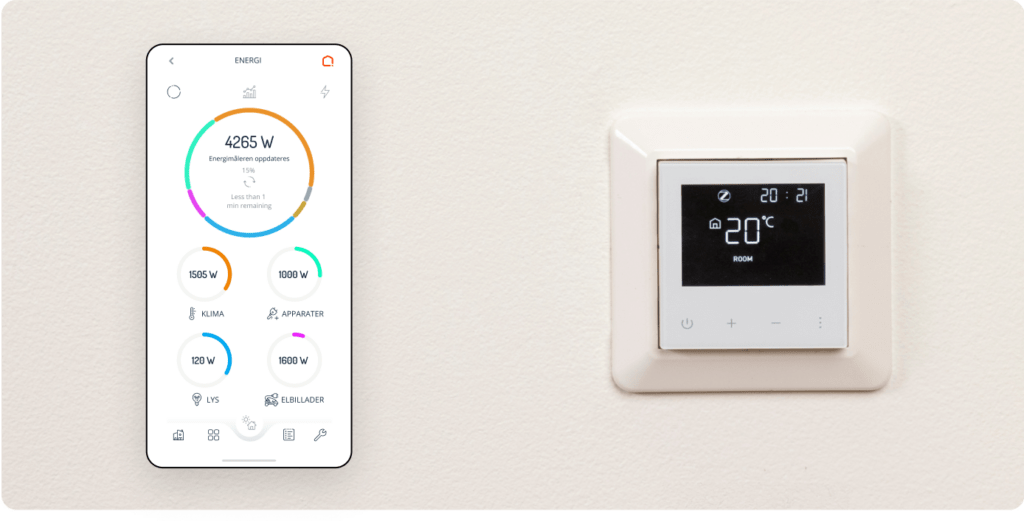The colder months of the year bring the challenge of maintaining thermal comfort at home while keeping energy costs under control. With rising energy prices and growing environmental awareness, more people are looking for efficient ways to manage heating. The solution lies in smart heating systems, which allow precise temperature control, reduce heat loss, and minimize energy consumption.
Smart heating systems are modern solutions that integrate traditional heating devices, such as furnaces, boilers, or radiators, with advanced temperature management technologies. A key feature of these systems is their ability to be remotely controlled and monitored via mobile applications, programmable thermostats, or voice assistants.
By utilizing temperature, humidity, and occupancy sensors, these systems adjust heating operations based on the users’ current needs. For example, when the system detects no one is at home, it automatically lowers the temperature to reduce energy consumption.
Smart heating systems employ a variety of technologies to enhance efficiency and convenience:

One of the main advantages of smart heating systems is the ability to precisely manage temperatures in individual rooms. This allows users to adjust the temperature according to specific needs, such as keeping the living room warmer, where people spend more time, and maintaining a cooler temperature in the bedroom.
Using heating schedules further helps eliminate unnecessary energy use. These systems can automatically lower the temperature at night or when no one is home, resulting in tangible savings.
Modern heating systems work in tandem with sensors that monitor weather conditions and adjust heating accordingly. For instance, during intense sunlight, the system can reduce heating in rooms that naturally warm up. Such solutions minimize heat loss and maximize energy efficiency.
To fully harness the potential of smart heating systems, users should configure heating schedules that align with their daily routines. For instance, temperatures can be lowered during work or school hours and increased an hour before the household returns home.
Regularly reviewing and adjusting settings to match changing weather conditions can also yield additional energy savings.
Smart heating systems integrate seamlessly with solar panel installations and heat pumps. Energy generated by solar panels can be used to power the heating system, significantly reducing costs. Combining heat pumps with smart energy management further enhances the system’s overall energy efficiency.
In the coming years, smart heating systems will become increasingly integrated with artificial intelligence (AI) and the Internet of Things (IoT). AI will enable even more precise temperature control, considering individual user preferences, weather conditions, and energy tariffs.
Additionally, technological advancements are expected to improve the energy efficiency of heating systems, allowing for even greater savings and reductions in CO₂ emissions. Through advanced algorithms and better insulation materials, heating will become more sustainable.
Smart heating systems are not only a convenient solution for households, but also an effective way to save energy during colder months. With precise temperature management, sensor technology, and the ability to integrate with renewable energy sources, these systems offer tangible benefits both economically and environmentally.
By investing in modern heating technologies, users can reduce their energy bills while contributing to environmental protection. In the face of changing energy demands and rising prices, smart heating is becoming an essential component of a sustainable modern home.
Back to blog list